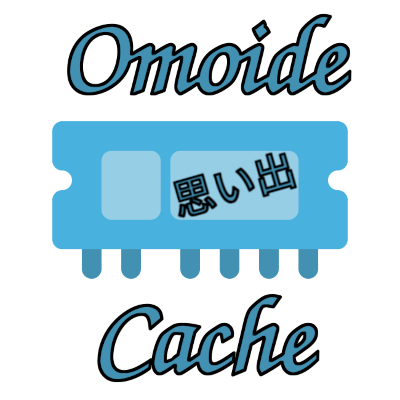https://github.com/jpleorx/omoide-cache
Robust, highly tunable and easy-to-integrate in-memory cache solution written in pure Python, with no dependencies.
https://github.com/jpleorx/omoide-cache
annotation cache cache-service caching caching-library caching-memory decorator inmemory-cache library pip pypi-package python python3
Last synced: 5 months ago
JSON representation
Robust, highly tunable and easy-to-integrate in-memory cache solution written in pure Python, with no dependencies.
- Host: GitHub
- URL: https://github.com/jpleorx/omoide-cache
- Owner: JPLeoRX
- License: other
- Created: 2021-07-19T23:57:44.000Z (about 4 years ago)
- Default Branch: master
- Last Pushed: 2023-04-25T20:27:21.000Z (over 2 years ago)
- Last Synced: 2025-03-31T21:42:31.320Z (6 months ago)
- Topics: annotation, cache, cache-service, caching, caching-library, caching-memory, decorator, inmemory-cache, library, pip, pypi-package, python, python3
- Language: Python
- Homepage:
- Size: 530 KB
- Stars: 3
- Watchers: 2
- Forks: 2
- Open Issues: 0
-
Metadata Files:
- Readme: README.md
- License: LICENSE.txt
Awesome Lists containing this project
README
# Omoide Cache - Simple in-memory cache solution
Caching doesn't need to be hard anymore. With just a few lines of code **Omoide Cache** will instantly bring your Python services to the next level!
---
**Released Library**: [PyPI](https://pypi.org/project/omoide-cache/)
**Source Code**: [GitHub](https://github.com/JPLeoRX/omoide-cache)
**Tutorial №1**: [my blog](https://tekleo.net/blog/omoide-cache-introduction-quick-and-easy-caching-in-python) or [Medium](https://medium.com/@leo.ertuna/omoide-cache-introduction-quick-and-easy-caching-in-python-13389b41bbfd)
---
# Description
This is a robust, highly tunable and easy-to-integrate in-memory cache solution written in pure Python, with no dependencies.
It is designed to be a method level cache, wrapping around a single class method, using method call arguments as cache key and storing its return value.
Customizable to suit your specific use-case, provides various expiry and refresh options.
Very user-friendly, super easy to integrate with a simple decorator (i.e. annotation, for those coming from Java), no need to add complicated logic into your code, just use `@omoide_cache()` on top of any method in your services. It will auto-generate a cache for your method with default settings. You can further adjust these settings through decorator parameters.
### When to use?
- You got a heavy call to the data source, where the data is read way more often than it is updated.
- You have CPU intensive computation logic, that takes a few seconds to complete, but can is frequently called with same input parameters.
### When not to use?
- On methods that are not expected to be frequently called with the same arguments (e.g. image processing / OCR / ML models with image inputs)
- On methods that return new values each time they are called, even with the same arguments.
- When you expect argument objects or returned objects to take-up a lot of memory. Cache will quickly eat up your ram if you don't setup expiry modes properly.
- Functions that are declared outside of class is a no go.
Fair warning - this project is in the earliest stage of its lifecycle, there will be a lot of improvement and bug fixes in the future. All suggestions and bug reports are highly welcome!
# Installation
## Normal installation
```bash
pip install omoide-cache
```
## Development installation
```bash
git clone https://github.com/jpleorx/omoide-cache.git
cd omoide-cache
pip install --editable .
```
# Examples
#### 1 - Basic usage example
```python
import time
from omoide_cache import omoide_cache
# A class where cache was added to a simulated long running method
class ExampleService:
@omoide_cache()
def time_consuming_method(self, x: int) -> int:
time.sleep(2.0)
return x * x
service = ExampleService()
# The first call will execute real logic and store the result in cache
service.time_consuming_method(1)
# The second call will get results from cache
service.time_consuming_method(1)
```
#### 2 - Example with size limit
Here we add a cache that will drop an item least frequently accessed when the cache becomes too large.
```python
import time
from omoide_cache import omoide_cache, ExpireMode
class ExampleService:
@omoide_cache(max_allowed_size=10, size_expire_mode=ExpireMode.ACCESS_COUNT_BASED)
def time_consuming_method(self, x: int) -> int:
time.sleep(2.0)
return x * x
```
#### 3 - Example with timed expiry
Here the cache will automatically remove items that were last accessed more than 2 minutes ago.
```python
import time
from omoide_cache import omoide_cache
class ExampleService:
@omoide_cache(expire_by_access_duration_s=120)
def time_consuming_method(self, x: int) -> int:
time.sleep(2.0)
return x * x
```
Alternatively we can remove items that were computed more than 2 minutes ago.
```python
import time
from omoide_cache import omoide_cache
class ExampleService:
@omoide_cache(expire_by_computed_duration_s=120)
def time_consuming_method(self, x: int) -> int:
time.sleep(2.0)
return x * x
```
#### 4 - Example with async refresh
Here the cache will asynchronously refresh items that were computed more than 2 minutes ago. Attempt to refresh will be performed every 10 seconds.
```python
import time
from omoide_cache import omoide_cache, RefreshMode
class ExampleService:
@omoide_cache(refresh_duration_s=120, refresh_period_s=10, refresh_mode=RefreshMode.INDEPENDENT)
def time_consuming_method(self, x: int) -> int:
time.sleep(2.0)
return x * x
```
# Known bugs
* You need to use the decorator with parentheses all the time, even when you don't specify any arguments, so use `@omoide_cache()`, but not `@omoide_cache`. I honestly have no fucking idea why there's this weird behaviour in decorators, will do my best to fix it in future updates.
# Links
In case you’d like to check my other work or contact me:
* [Personal website](https://tekleo.net/)
* [GitHub](https://github.com/jpleorx)
* [PyPI](https://pypi.org/user/JPLeoRX/)
* [DockerHub](https://hub.docker.com/u/jpleorx)
* [Articles on Medium](https://medium.com/@leo.ertuna)
* [LinkedIn (feel free to connect)](https://www.linkedin.com/in/leo-ertuna-14b539187/)
